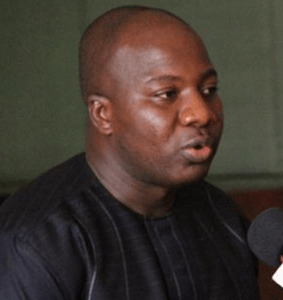Ghana Nuclear Regulatory Authority Board inaugurated

Ghana has inaugurated an independent governing board for the Nuclear Regulatory Authority (NRA) in fulfilment of Article 70 (1) of the 1992 Constitution.
This also fulfils the Section 7 of the Nuclear Regulatory Act of 2015 (Act 895).
The seven-member Board would be chaired by Professor Albert Fiadjoe, Former Chairperson of the Constitutional Review Commission.
Other members were Prof. Geoffery Emy Raynolds, Director of Radiation Protection Institute, Ghana Atomic Energy Commission (GAEC); Emeritus Prof. Edward Akaho, Former Director-General of GAEC; Mr William Kofi Baffoe-Mensah, representing the National Security; Mr John Pwamang, Dr Mohammed Alfa and Prof. Aba Bentsil Adam.
As an independent regulatory authority, the board is to provide for the protection of the present generation, posterity and the environment against the harmful effects of ionising radiation, safety of radiation sources, and radioactive waste.
The Board would also provide for the safety, security and safeguarding of nuclear materials and nuclear installations, ensure that radioactive sources and nuclear materials including radioactive waste, both from within and outside the country are properly controlled.
Dr Bernice Adiku Heloo, Deputy Minister of Environment, Science, Technology and Innovation (MESTI), urged the Board to be mindful of the provisions in the entire Act 895, but more important the scope of application as stated in Section (1), the functions of the Authority in Section (5) and the powers of the Authority as expressed in Section (6).
She said the nuclear industry was highly beneficial if properly regulated and supervised, however, misconceptions arising from the lack of education on the industry, often generates public fear whenever the issues of nuclear physics is brought to the fore, probably due to the history of previous disasters that has occurred in other countries.
Dr Heloo applauded the hard work of officials from GAEC, MESTI, Former Ministers of State, the Attorney General’s Department, Members of Parliament, International Atomic Energy Agency (IAEA) consultants and many others who laid the foundation and worked towards the achievement of the Act.
She said after the Nuclear Regulatory Act 895 was assented by President John Dramani Mahama on August 14, 2015, it became important that a Regulatory Authority be established.
Her address also captured an important brief of the history of the establishment of GAEC and its mandate, and said the Commission under (ACT 588) of 2000, has as one of its functions through the Radiation Protection Board, “to supervise the carrying out of all requirements designed to protect the safety and health of radiation workers and the environment”, and to ensure that nothing on its premises or elsewhere suffers nuclear damage.
The Radiation Protection Instrument of 1993 L.I 1559, now revoked, was further responsible for ensuring that safety and health of radiation workers, irradiation of nuclear material and the radioactive waste from these activities and practices were properly handled, she said.
It also carried out inspection, authorisation and enforcement of practice in compliance with the 1992 Constitution and other international legal instruments.
Dr Heloo said the role of GAEC as an operator and regulator was a “recipe for conflict” and fell short of international best practice and the dictates of the IAEA, and it became imperative that a legal mechanism was set in motion to establish an independent Regulatory Authority, hence the passage of the Nuclear Regulatory Authority Act.
She said Ghana has been a member of the IAEA since September 1960, and was also a party to a host of international legal instruments such as the Treaty on Non-Proliferation of Nuclear Weapons and the Convention on Nuclear Safety, and that the NRA would ensure that Ghana fulfils its international obligations under all treaties and conventions in maintaining nuclear safety and security.
Dr Heloo said Ghana’s quest to introduce nuclear power into its energy mix can only be possible if we have a viable, credible and fully functional independent regulatory authority.
The establishment of the Regulatory Authority would enable GAEC to focus on its current functions of promoting the peaceful application of nuclear technology for energy, research, commercialisation, development, education and consultancy.
Prof. Fiadjoe, on behalf of the Members of the Board, thanked the Minister for the honour bestowed on them, and also GAEC for the strong institutional cooperation.
He said “as the foundation Board of the NRA, we are mindful of the enormity of the tasks placed upon us in selling the national vision of nuclear regulation to the people of Ghana domestically and also internationally”.
He said issues such as population, health and safety, the environment, defense and security, nuclear reactor regulation, licensing, inspection, compliance and enforcement of laws and regulations would be some of the matters that would engage the attention of the Board.
Prof. Benjamin J. Nyarko, Director-General of the Ghana Atomic Energy Commission, said the occasion would certainly go down into the historical records of the country, as the beginning of a greater landmark towards the achievement of a successful nuclear power programme.
Source: GNA
